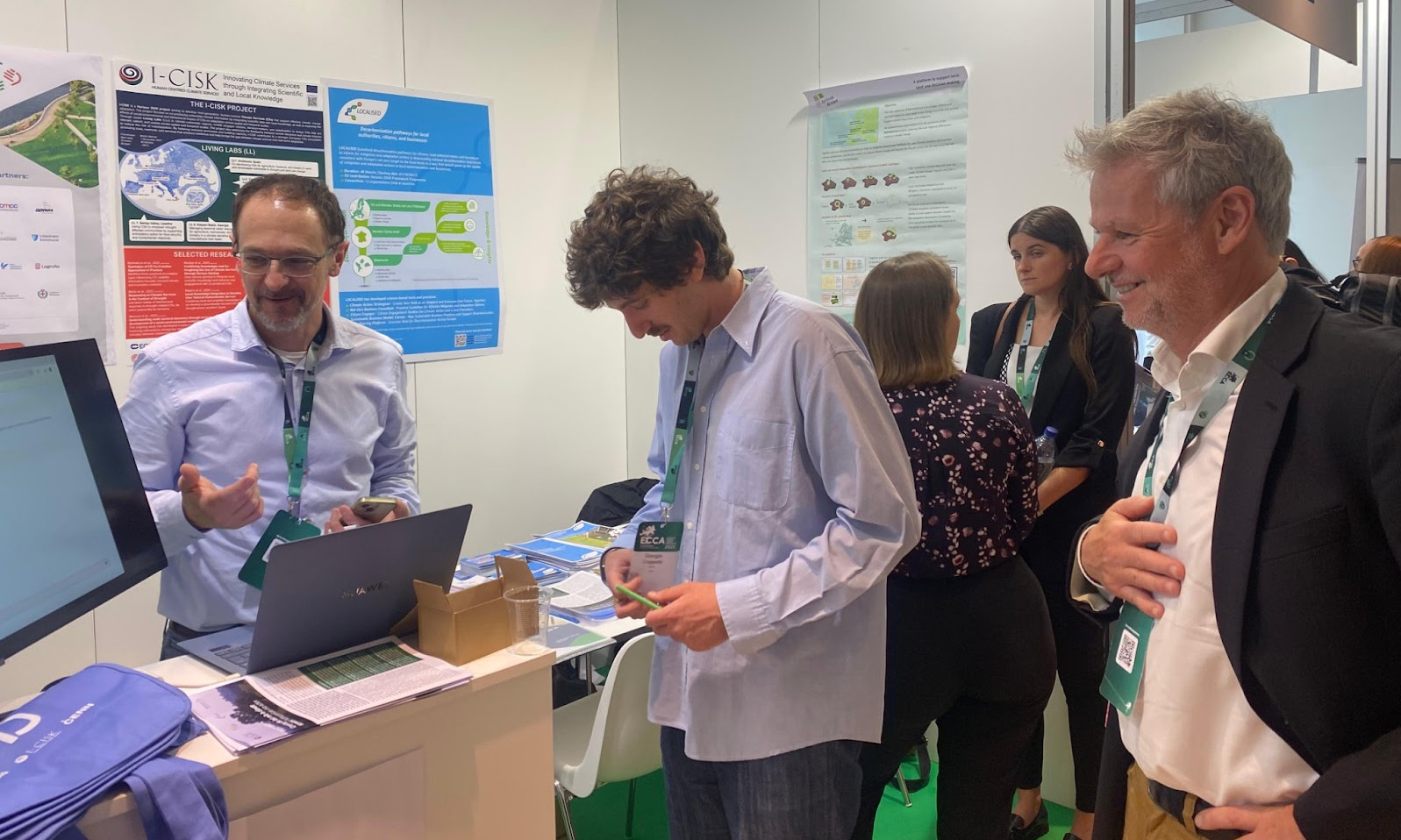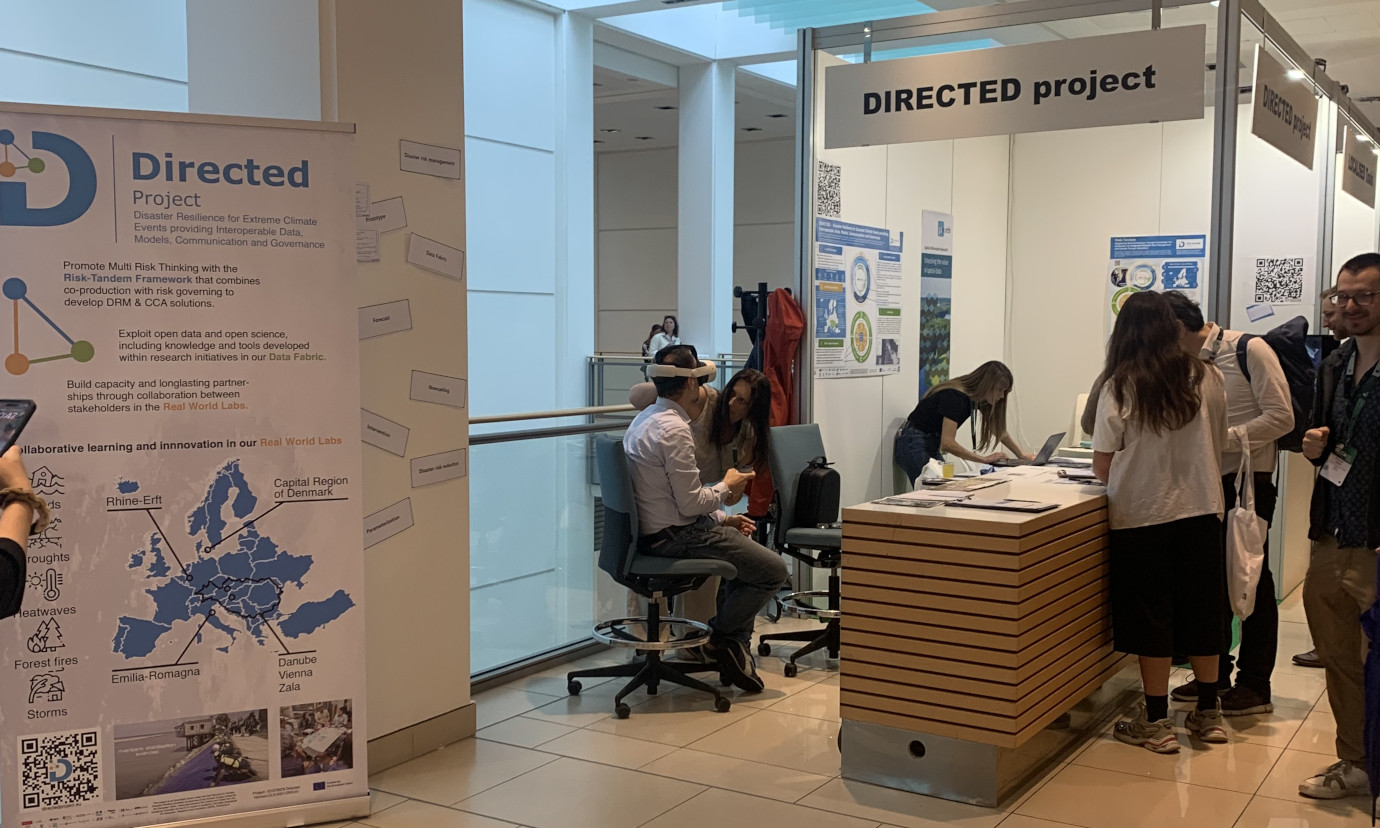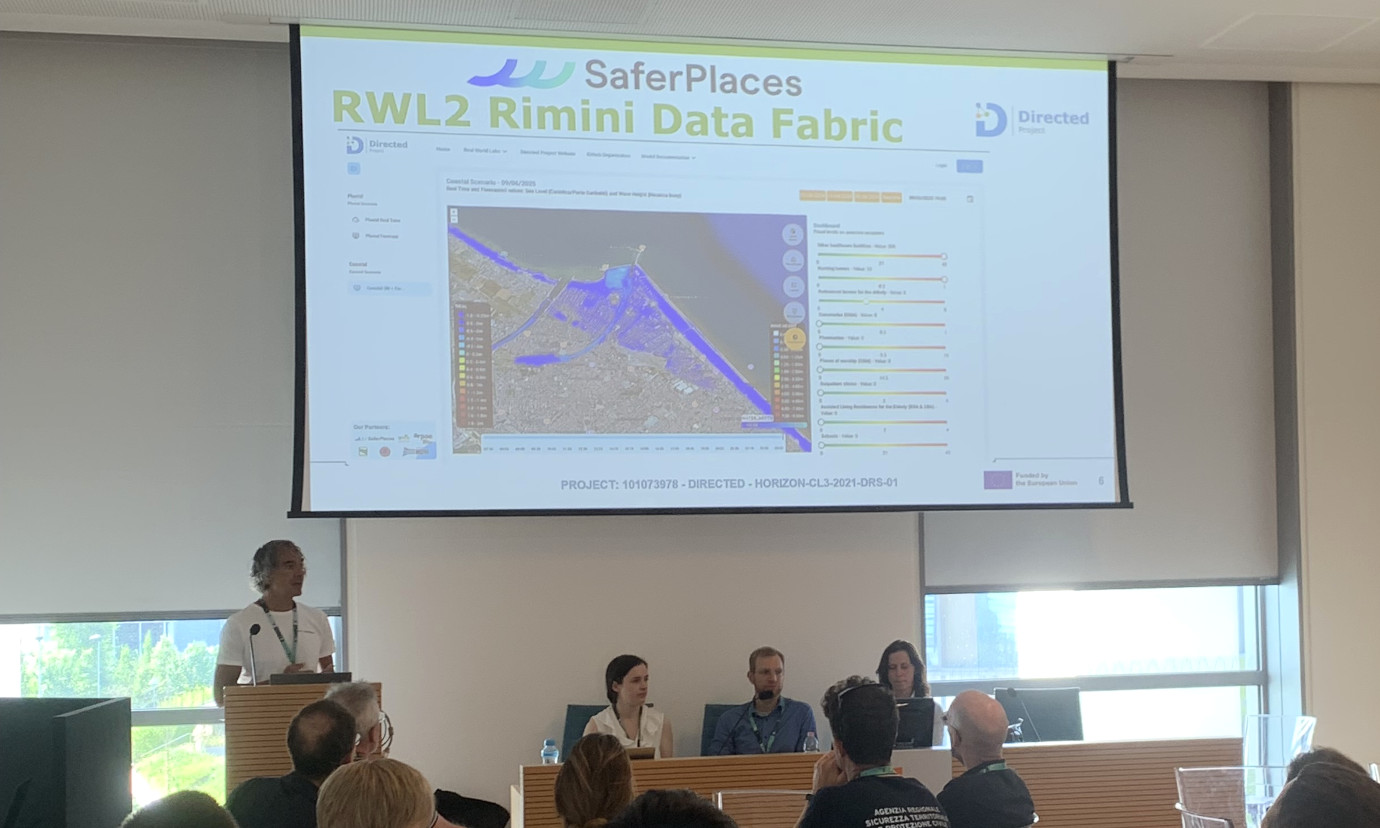I-CISK and DIRECTED projects on display
Researchers, decision-makers, practitioners, and stakeholders recently gathered in Rimini, Italy for the 7th European Climate Change Adaptation Conference (ECCA). This vibrant platform showcased cutting-edge research and innovative solutions while fostering collaboration and sharing knowledge and best practices. For three full days, participants exchanged research findings, innovative policy developments, and practical implementation experiences for a climate-resilient society. 52°North joined consortium colleagues to present and discuss work being done on climate services (in I-CISK) and disaster risk management (in DIRECTED).
I-CISK
The European project “Innovating Climate services through Integrating Scientific and local Knowledge – I-CISK” collaborates with end users from seven living labs across Europe and beyond to co-design and develop climate services. The use cases range across different fields of application, including agriculture, water management, and tourism. With its focus on climate change adaptation, the European Climate Change Adaptation Conference (ECCA 2025) provided an ideal opportunity to present and discuss the results of I-CISK. Alongside the sister projects LOCALISED, ReachOut, and RethinkAction, I-CISK co-organized a high-level scientific session to encourage dialogue between presenters and attendees. I-CISK also participated in the Special Brokerage Event, which provided an opportunity for informal networking and collaboration between researchers, policymakers, practitioners, and funders regarding practical tools for translating climate information into action. This event provided an excellent opportunity to explore synergies and future collaborations across projects and sectors.
Throughout the conference, we also welcomed visitors to our joint exhibition booth, where we presented the I-CISK project and shared insights and the prototypical Climate Services from our Living Labs. We also distributed our latest policy briefs and publications. Additionally, we introduced our Agentic AI Climate Service Generator — a cutting-edge tool that provides users with access to climate-related information from C3S and enables them to generate tailored climate services in a Jupyter notebook via a natural language model interface. This solution is a significant advancement in making climate data more accessible, interactive, and user-driven.

DIRECTED
The Horizon Europe Project – DIsaster Resilience for Extreme ClimaTe Events providing interoperable Data, models, communication and governance (DIRECTED), is a European innovation action designed to enhance disaster resilience against extreme climate events. It focuses on providing interoperable data, developing interoperable models for risk assessment, refining communication strategies for timely information dissemination, and establishing robust governance frameworks to ensure a cohesive, coordinated approach to disaster preparedness and response across Europe. The project relies on a strong co-production approach, where stakeholders from four Real World Labs, in Emilia-Romagna, Italy the Capital Region of Denmark, the Rhine-Erft area, Germany and the Danube Region are an integral part of the design and development process, offering invaluable real world insights making our innovations usable in real world situations.
The DIRECTED project showcased its cutting-edge tools and solutions designed to enhance governance, communication, and interoperability of data and models at its booth. This provided a great platform for discussing ongoing work and disseminating results. The exhibition drew a continuous flow of researchers, stakeholders, and policymakers eager to learn from DIRECTED.

In addition, DIRECTED contributed a scientific session “Turning scientific research into actionable solutions by tackling challenges of interoperability in DRM and CCA” to the general program, fostering discussions among attendees and project members. There was also a side event, creating an opportunity for a “learning exchange on extreme flooding in Rimini using interoperable tools and governance frameworks.” The highlight of the session was the firsthand experience of local and regional civil protection staff, who shared their insights and took an active role in the discussion to refine the prototypical Data Fabric.

Leave a Reply